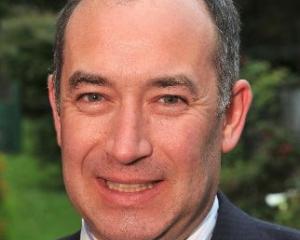Both the Dunedin City Council and Otago Regional Council gave clear signals, though with conditions attached, they support the project, despite price increases that mean the stadium's cost is now listed as $198 million.
The decisions were also made despite assurances the project would cost "not a cent more" than $188 million.
The votes show, if nothing else, there are solid majorities on both councils that want the stadium to go ahead, and they will work around any conditions they set to make it happen.
The nub of the decisions made were that the stadium would go ahead, as long as $15 million was found to cover the private sector funding shortfall, though the Otago Regional Council requires only an "acceptable assurance" of "a likely capital contribution" of $15 million, by March 2.
There appears to be little that can now stop the project, unless the Government and other funders do not chip in.
Dunedin City Council chief executive Jim Harland said yesterday the March 2 deadline set by the regional council was adopted by the city council by default, because the city needed the regional council's funding assured as one of its conditions.
The $15 million was "the key" to the project, as the $20 million the council said it must find had no deadline, and would not stop a contract being signed if it was not found this year.
Because it had no time-line, it was "not a deal-breaker".
The only other thing that could stand in the way of the stadium was an Environment Court appeal against plan changes that have been approved so far.
"It needs to get through that."
Asked what would happen if the Government and funders gave less than $15 million, Mr Harland said that would be a decision for the council.
A report from council finance and corporate support general manager Athol Stephens this week reiterated the way the council plans to deal with the stadium within its company structures.
The stadium would be transferred to a 100% council-owned company, provisionally called Dunedin City Venues Ltd.
The company would assume full responsibility for marketing, promoting and staging events and activities, would maintain the building, and operate it in "a sound financial manner".
As a council trading organisation, it would "have the flexibility to pursue opportunities outside the constraints, sometimes tight, imposed by strict annual planning provisions".
It would carry a debt of $108 million from July 1, 2011, which would be serviced by the combined cash flows of all the other council-owned trading organisations, with debt servicing absorbing about $10 million of those companies' cash flows.
Dividends from the companies to the council would remain as forecast last year - a reduction of $5 million.
That is achieved because although forecast debt had increased since last year from $92.3 million to $108.8 million, there had been a 2% reduction in interest rates.
The $5 million per annum shortfall would be paid by ratepayers.
Those with a median value property with a capital value of $250,000 would pay an extra $57 a year, and a property with an average value of $291,000 would pay an extra $66 a year.
Those costs are for residential ratepayers, but Cr Kate Wilson complained this week they were far higher for farming and commercial landowners.
Mr Stephens listed changes to the financial modelling for the stadium, which included one site at Awatea St costing $3 million more to secure than expected.
Asked who the property owner was, Mr Harland said: "No comment".
As well, a sum of $5 million expected from the sale of Carisbrook had not materialised; the Community Trust of Otago had contributed $3 million less than expected; private sector funding would not come through until 2011, rather than in the next two years, and interest rates had dropped from 9% to 7%.
An "underwrite" of $15 million was also included, and some funding trusts had indicated they may be able to help out, but that was not finalised.






